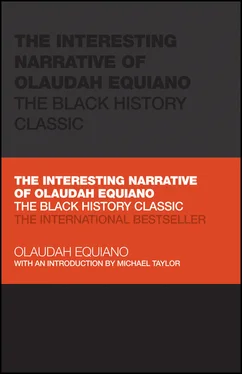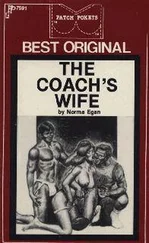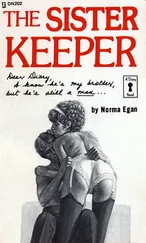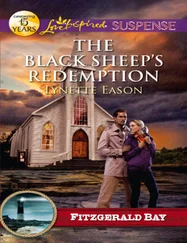Olaudah Equiano - The Interesting Narrative of Olaudah Equiano
Здесь есть возможность читать онлайн «Olaudah Equiano - The Interesting Narrative of Olaudah Equiano» — ознакомительный отрывок электронной книги совершенно бесплатно, а после прочтения отрывка купить полную версию. В некоторых случаях можно слушать аудио, скачать через торрент в формате fb2 и присутствует краткое содержание. Жанр: unrecognised, на английском языке. Описание произведения, (предисловие) а так же отзывы посетителей доступны на портале библиотеки ЛибКат.
- Название:The Interesting Narrative of Olaudah Equiano
- Автор:
- Жанр:
- Год:неизвестен
- ISBN:нет данных
- Рейтинг книги:3 / 5. Голосов: 1
-
Избранное:Добавить в избранное
- Отзывы:
-
Ваша оценка:
- 60
- 1
- 2
- 3
- 4
- 5
The Interesting Narrative of Olaudah Equiano: краткое содержание, описание и аннотация
Предлагаем к чтению аннотацию, описание, краткое содержание или предисловие (зависит от того, что написал сам автор книги «The Interesting Narrative of Olaudah Equiano»). Если вы не нашли необходимую информацию о книге — напишите в комментариях, мы постараемся отыскать её.
The Interesting Narrative of Olaudah Equiano An insightful Introduction from Atlantic slave trade expert Michael Taylor sheds light on Equiano’s life, including his spiritual conversion, his wide travels, and the impact of his writing on the eventual abolition of slavery.
The Interesting Narrative of Olaudah Equiano — читать онлайн ознакомительный отрывок
Ниже представлен текст книги, разбитый по страницам. Система сохранения места последней прочитанной страницы, позволяет с удобством читать онлайн бесплатно книгу «The Interesting Narrative of Olaudah Equiano», без необходимости каждый раз заново искать на чём Вы остановились. Поставьте закладку, и сможете в любой момент перейти на страницу, на которой закончили чтение.
Интервал:
Закладка:
EMERGING ABOLITIONIST
In 1777, Equiano was back in London, which he had come to regard as ‘home’, and where abolitionism was emerging from the crucible of dissenting Protestant thought. In its earliest years, the abolitionist ‘movement’ operated only in sporadic bursts, often at the prompting of Granville Sharp. The son of a Northumbrian deacon, Sharp had rescued African teenager Jonathan Strong from deportation to Jamaica in 1765 before intervening in the Somerset litigation of 1772–73. Here, the issue before the English courts concerned the ability of a planter to re -enslave a person, in this case the freed black man James Somerset, on British soil. Although Lord Mansfield ruled in time in Somerset's favour, it was not the sweeping condemnation of slaveholding that so many had wanted. The Morning Chronicle described the judgment as ‘guarded, cautious, and concise’.
In the spring of 1783, Equiano made his first momentous contribution to the abolitionist cause. He delivered some highly disturbing intelligence to Sharp, who was working as a clerk at the Ordnance Office. ‘Gustavus Vasa a Negro’, Sharp wrote in his diary, ‘called on me with an account of 130 Negroes being thrown Alive into the sea from on Board an English Slave Ship.’ (Beyond the authorship of the Narrative , Equiano went almost universally by the name of Vasa.)
The ship in question was the Zong , which in 1781 had set off from the Gold Coast for Jamaica with 442 Africans in its hold. Having mistakenly sailed past Jamaica by several hundred miles, and finding themselves short of drinking water, the crew of the Zong had elected – as Equiano accurately reported – to throw overboard almost one-third of the people they were trafficking. They did so for purely commercial reasons: the insurance law of the day provided nothing if enslaved Africans died of natural causes such as dehydration, but did compensate traders for any ‘cargo’ that they needed to jettison in order to preserve the remainder. It followed that, when the case of the Zong came before the courts, it was not on account of criminal charges; instead, the dispute arose because the insurers refused to pay up. It would take an appeal and the scandalous evidence that the Zong in fact had plenty of water on board for the insurers to win, but Sharp would fail to bring criminal charges against the crew.
Even so, the Zong massacre proved a catalyst for abolitionism. By 1787, the Society for Effecting the Abolition of the Slave Trade had formed under the political leadership of William Wilberforce. Equiano – in alliance with other once-enslaved Britons such as Ottobah Cugoano – established the corresponding society known as the Sons of Africa. Working in tandem, Wilberforce's abolitionists and the Sons of Africa began flooding the London papers with anti-slavery material, constructing mass petitions calling for abolition, and publishing tracts which attacked the slave trade on moral, religious, and even economic grounds. Equiano's pugnacious dispute with pro-slavery interests in the Morning Chronicle brought him ever greater renown.
Equiano had also taken a position with the Committee for the Relief of the Black Poor. The Committee had been founded in 1786 to provide assistance to the thousands of black loyalists whose reward for fighting with the Crown against the American revolutionaries was freedom – albeit a freedom which often left them languishing on the streets of London. Almost immediately, the Committee set about resettling these black loyalists to Sierra Leone, the new British colony on the coast of Guinea. Appointed as a commissary with responsibility for ‘provisions and stores’, Equiano's time with the Sierra Leone project would end in ignominy – he was dismissed after complaining about the colony's financial mismanagement. But it was in this context of increasing public engagement with the slavery issue that, in 1789, he wrote and published the Interesting Narrative .
THE NARRATIVE
Equiano's Narrative was not published into a vacuum; nor did he publish his autobiography as an unknown. On the contrary, he wrote with the political and financial support of many significant figures in British society who demonstrated that support by subscribing to the first edition; that is, they committed to buy a copy and paid the price up-front, so that Equiano could live upon these early proceeds as he concentrated on writing. Many of the Narrative 's subscribers (listed at the start of the book) will be familiar to even casual students of Georgian history: the Prince of Wales, the future Prince Regent and George III; the (Grand Old) Duke of York; the abolitionists Thomas Clarkson and James Ramsay; the author Hannah More and the businessman Josiah Wedgwood; founder of Methodism John Wesley; and a healthy dose of MPs and peers besides. Into their hands Equiano now placed the most affecting account of enslavement – and African intelligence and ingenuity – which had been written.
As the opening passages of the Narrative make clear, slavery was nothing new to Equiano. At home in Benin, the houses of masters and their slaves made up the towns and villages. Equiano's own father had been a slaveholder, and the local slave trade was frequently the cause of ‘irruptions of one little state or district into another’. Yet in Equiano's view there were plain differences between African slavery and that into which Europeans forced him and so many millions of others. For one thing, Equiano almost appears to regard African enslavement as justifiable. ‘Sometimes indeed we sold slaves to them’, he writes of his neighbours, ‘but they were only prisoners of war, or such among us who had been convicted of kidnapping, or adultery, and some other crimes, which we esteemed heinous.’ In short, slavery was dependent on the character of the person, not their skin colour. ‘But how different was their condition from that of the slaves in the West Indies!’ Equiano exclaims. ‘With us they do no more work than other members of the community, even their masters; their food, clothing and lodging were nearly the same as theirs … Some of these slaves have even slaves under them as property, and for their own use.’
This contrasted sharply with what Equiano experienced at the hands of British slave traders. Just as Mary Prince would later educate British readers on the atrocities inflicted upon enslaved people in the West Indies of the 1820s, Equiano gave the readers of the 1780s a painful and often shocking account of the odious commerce. ‘Slaves are sometimes, by half-feeding, half-clothing, over-working and stripes, reduced so low’, he lamented, ‘that they are turned out as unfit for service, and left to perish in the woods, or expire on a dunghill.’ This hatred of slavery would not, however, prevent Equiano from buying enslaved people to work on the plantation that he sought to establish on the Mosquito Coast. Moreover, when Equiano eventually abandoned the project it was not because this apparent toleration of slavery had expired. Rather, it was because he disliked the lifestyle: ‘our mode of procedure and living in this heathenish form’ he writes, was ‘very irksome’.
EQUIANO THE CHRISTIAN
Besides slavery, the second great theme of the Narrative is Christianity. As such, it falls squarely within the genre of spiritual autobiography, and Equiano sought explicitly to immerse himself in the same religion that was practised by his readers. Though his faith was no doubt sincere (he fondly recalls his conversion and later baptism in the year 1759), it was also a rhetorical device to remind his readers that all Africans, such as he, were capable of Christian piety and British civility. Perhaps of even more relevance, Equiano's Christianity was pointedly Protestant and often hostile to Catholicism. When sailing the Mediterranean, for instance, he decries the Portuguese Inquisition and its prohibition of lay readership of the Bible. He is equally unimpressed with Catholic rituals in Porto: ‘I had a great curiosity to go into some of their churches’, he writes, ‘but could not gain admittance without using the necessary sprinkling of holy water at my entrance … I therefore completed this with ceremony, but its virtues were lost on me, for I found myself nothing the better for it’.
Читать дальшеИнтервал:
Закладка:
Похожие книги на «The Interesting Narrative of Olaudah Equiano»
Представляем Вашему вниманию похожие книги на «The Interesting Narrative of Olaudah Equiano» списком для выбора. Мы отобрали схожую по названию и смыслу литературу в надежде предоставить читателям больше вариантов отыскать новые, интересные, ещё непрочитанные произведения.
Обсуждение, отзывы о книге «The Interesting Narrative of Olaudah Equiano» и просто собственные мнения читателей. Оставьте ваши комментарии, напишите, что Вы думаете о произведении, его смысле или главных героях. Укажите что конкретно понравилось, а что нет, и почему Вы так считаете.











